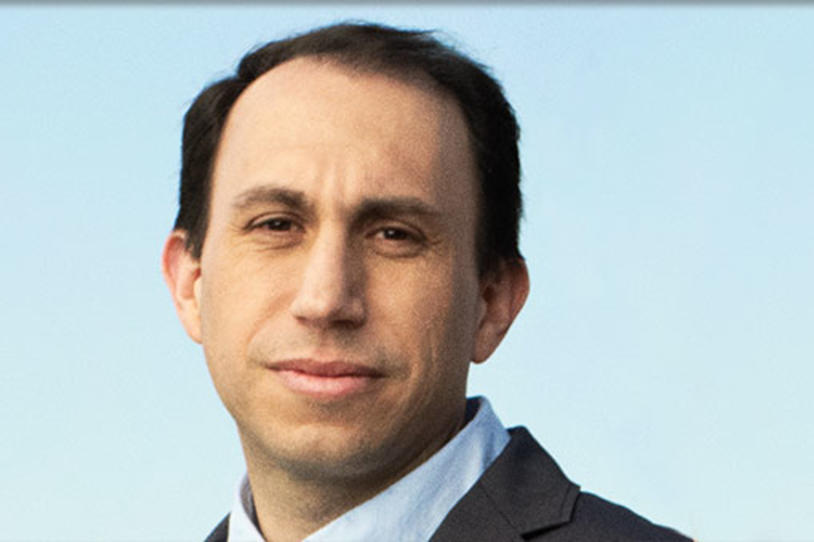
I’m one of the millions who’s been tuning in to NBC for “The Michael J. Fox Show” on Thursday nights this fall. While I’m laughing along with the rest of the country, Michael’s return to his own sitcom means more than a new favorite show for us in the Parkinson’s community. It has created a fresh opportunity to reflect on our shared goal of finding a cure for Parkinson’s disease (PD) in our lifetime.
As I recently wrote in Scientific American, for the five million Parkinson’s patients worldwide, the current status quo is not nearly good enough. Medication and therapies alleviate some symptoms, but create their own problems and fail to address all the effects of PD or stop disease progression. And for every patient, a community is affected, as the impact of PD ripples to loved ones and caregivers. This is a global problem — one that we can and must solve.
Looking back over the last year, we have made some strides. There’s still much work to be done, but we know more than we did and those discoveries will shape our future research.
We’re taking steps toward establishing biomarkers. The first published results out of the MJFF-led Parkinson’s Progression Markers Initiative (PPMI) — in JAMA Neurology in August — show lower levels of some proteins in spinal fluid of PD patients compared to levels in healthy controls. These findings were from a subsample of the 600 PPMI participants, so our next step is to validate these outcomes in the larger group. We’re also going to test these levels in the same patients as the study goes on to monitor for changes. We’re optimistic that this may be a biologic marker that we can use to diagnose and track PD.
We’re hastening translation of genetic discoveries into Parkinson’s treatments. We know some gene mutations underlie Parkinson’s risk, onset and progression. We’re funding research and organizing scientists to understand the pathology and mechanisms of these mutations so we can learn how to approach them with interventions to offset their effects. What we learn about genes like alpha-synuclein, LRRK2, Parkin and Pink1 will inform development of disease-modifying therapies for the broader Parkinson’s community, including those with idiopathic disease.
One of the first of these therapies is in clinical study; we’ve funded a trial testing a vaccine from AFFiRiS AG that targets and helps remove the alpha-synuclein protein, whose clumping is the pathological hallmark of PD. Additionally, MJFF-funded research investigating the GCase enzyme in the brain is the basis of a promising new partnership between biotech Amicus Therapeutics and pharmaceutical company Biogen Idec. Loss of GCase enzyme activity, from mutations in the GBA1 gene, has been linked to alpha-synuclein accumulation. A drug targeting this mechanism could be disease-modifying.
We’re diving deeper into non-motor symptom treatments and better delivery of levodopa. Our sponsored Phase 1b clinical trial of Sanofi’s drug AVE8112 to treat mild cognitive impairment in PD patients is under way, and we’re working with the U.S. Food and Drug Administration to construct the most efficient paradigm for getting new cognition drug candidates approved. We’re also funding a study to test a drug therapy for chronic constipation and studies into orthostatic hypotension and heart rate variability among PD patients. Just this fall, MJFF research partner Civitas Therapeutics announced a $38-million deal to complete the Phase 2b study of their inhaled formulation of levodopa and initiate a Phase 3 study. Read more here.
And so, with purpose re-examined and determination redoubled, we head into 2014. Here are our promises to you:
Until there is a cure, we will never ease the pedal off high-impact Parkinson’s research. We’re on the cusp of critical findings and game-changing discoveries, such as biomarkers. With your help, we have made significant strides toward breakthrough treatments, and more new Parkinson’s drugs are in development than ever before. We need your support to keep these moving forward.
We will create robust platforms for patients and their loved ones to participate in and directly inform Parkinson’s drug development. Technology today exists to expand the role of patients in research far beyond chat board information sharing and support. MJFF is pushing forward technological solutions to gather data directly from patients, then make it available to researchers, enabling investigators to develop new therapeutic avenues directly tied to patients’ greatest needs.
We will continue taking calculated risks to forge a path that can help define the next generation of scientific collaboration. I fervently believe that partnerships are the path to better treatments and cures for Parkinson’s, and you’d be hard-pressed to find many scientists who disagree. The problem is, investigators still work in a system that feeds on secrecy and competition. Our Foundation is working hard to conceptualize and implement new models for collaboration.
Michael J. Fox is fiercely optimistic, and I’m so glad to see him back on the screen. His attitude is infectious, and it’s inspired us all here at the Foundation to dream of the day when every Parkinson’s patient can return to a career they love — or better yet, never leave it in the first place. I hope it inspires you, too. The cure is out there. Together we’ll find it.
Tell me what you think about these reports — and what you’d like me to cover in future editions. Email theshererreport@michaeljfox.org
